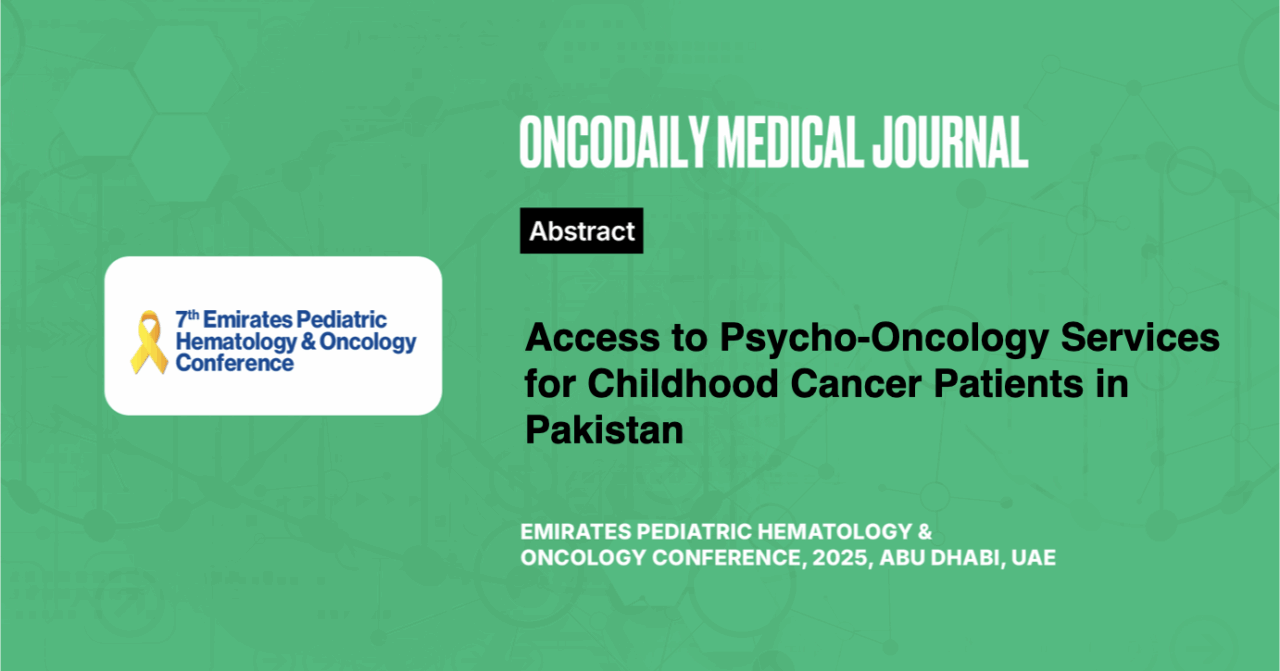Access to Psycho-Oncology Services for Childhood Cancer Patients in Pakistan
Abstract
Introduction: The burden of cancer in children is increasing globally. Improvement and access to services are needed to treat this disease and enhance mental well-being, highlighting the need for dedicated pediatric psycho-oncology services for patients and their families. Cancer treatment is a long and challenging journey that becomes exponentially harder without psychosocial support. Since there is no data that addresses the prevalence of psychological problems in childhood cancer patients, simultaneously, there is a scarcity of findings regarding Pediatric psycho-oncology services in Pakistan.
Therefore, it is vital for all the pediatric oncology units of Pakistan to start providing psycho-oncology services to cure anxiety, depression, and other mental health problems of childhood cancer patients and their caregivers. It is also equally important to address psychological issues that childhood cancer patients are more likely to suffer. This study explores the availability and gap of pediatric psycho-oncology services in pediatric-oncology units across Pakistan.
Methodology: An online survey was created on google forms and circulated to unit heads and psychologists across all childhood cancer facilities. A total of 11 participants completed the online questionnaire containing nine open-ended and eleven multiple-choice questions.
Results: Out of the 13 units surveyed, 11 centers responded, and (54.5%) have a psycho-social department existing in their facility of which 4 are dedicated to paediatric oncology. Play area for children was present in 8(72%) of facilities. There are only 5(45%) centers that have psychologists, 3(27%) only social workers and 3(27%) have none of them. All of the dedicated psycho-social departments had required NGO and welfare support for hiring psychosocial personnel since state allotted positions did not exist.
The psycho-social worker has always been involved in inpatient counseling, particularly in enucleation and amputation cases in most centers. The majority of the centers’ psycho-social departments don’t conduct training sessions for other staff members regarding counseling techniques and the mental health of patients. A vast majority of units did not have a full-time dedicated resource for psychosocial services and no immediate plans to appoint one.
Conclusion: Paed-Oncology centers of Pakistan are lacking in psycho-oncology services for the mental well-being of children battling cancer. Additional research can be conducted to explore the factors causing constraints in the availability of Paeds-Psycho-Oncology services in Pakistan.





